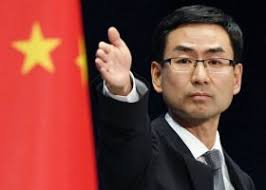
CHINA ECONOMIC NET
BEIJING – China has expressed its readiness to pursue “high-quality development” of the China-Pakistan Economic Corridor which would benefit both the countries.
Chinese foreign ministry spokesperson Geng Shuang passed these comments at a press briefing while explaining the second phase of the Pakistan-China Free Trade Agreement (FTA-II).
Geng said that the amending protocol to the FTA-II came into effect on December 1, 2019, while the tariff reduction entered into force on January 1.
The spokesperson shared that the protocol “upgraded and revised” the original free trade agreement on market access for trade in goods and tariff reduction schedules, rules of origin, trade remedies and investment.
“It (Protocol) [has] added a new chapter on customs cooperation,” said Geng, adding that the “core content” of the protocol was to “substantially increase the level of liberalisation of trade in goods”.
The spokesperson shared that the protocol specifies that the “proportion of tariff lines” with zero-tariff products will eventually go up from 35 per cent to 75 per cent.
“In addition, we will also have a 20 per cent reduction in tariffs on other products that account for 5 per cent of their respective tariff lines,” said Geng.
The spokesperson reiterated that China and Pakistan are “all-weather strategic cooperative partners”. He added that the bilateral relations between the two countries have been growing at a “sound momentum”.
Geng informed the journalists that Beijing is ready to work with Islamabad to “consolidate political mutual trust, strengthen all-around cooperation including trade and investment”.
The Phase-II of Pakistan-China FTA came into effect at the start of this year after the Federal Board of Revenue issued the Statutory Regulatory Orders to implement the protocol agreed between the two countries.
Pakistan and China inked the FTA-II in Beijing on April 28, 2019 and under the new FTA Pakistan had secured enhanced and deeper concessions on products of its export interests, revision of safeguards mechanism for protection of the domestic industry, inclusion of the balance of payment clause as a safety valve against balance of payments difficulties, and effective enforcement of the electronic data exchange.








